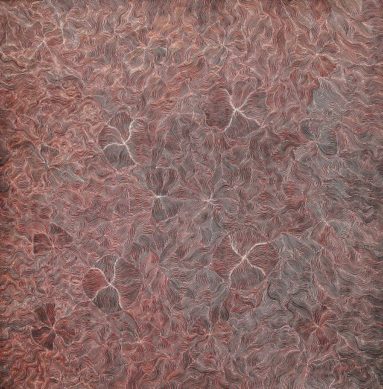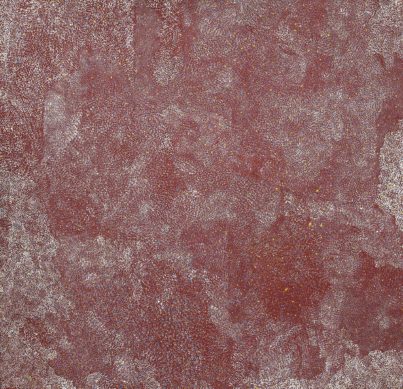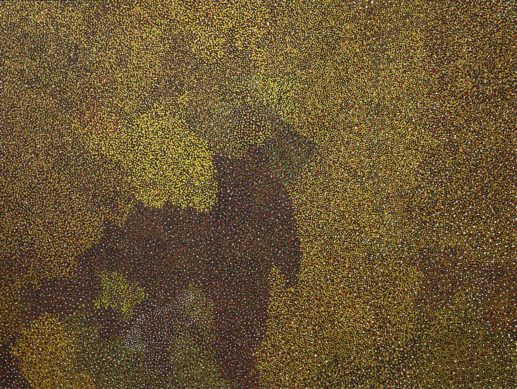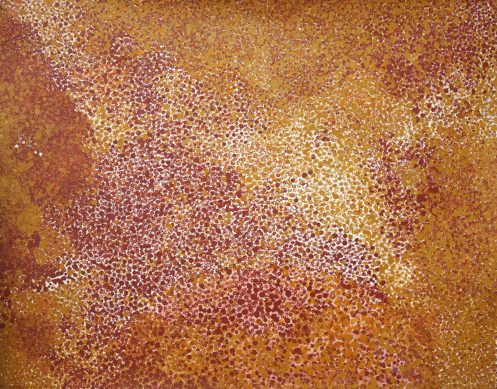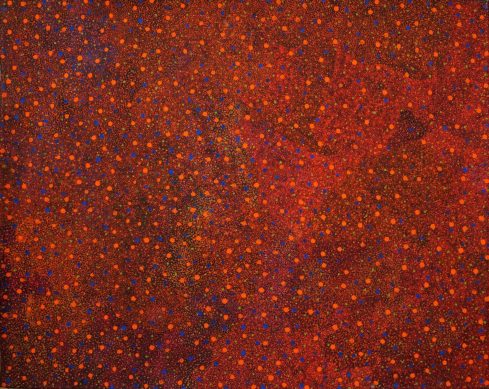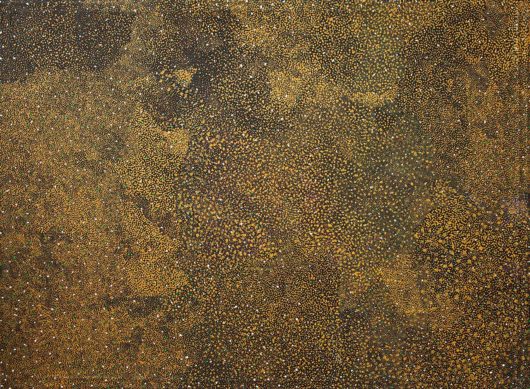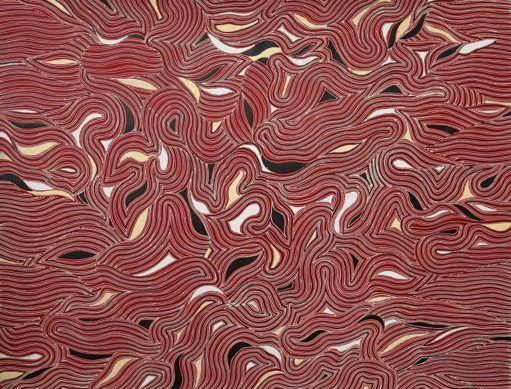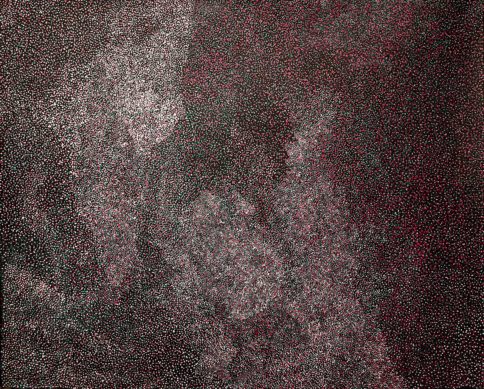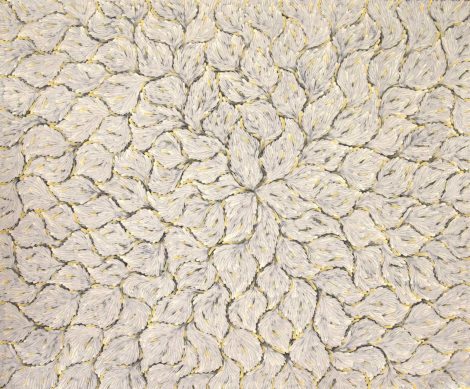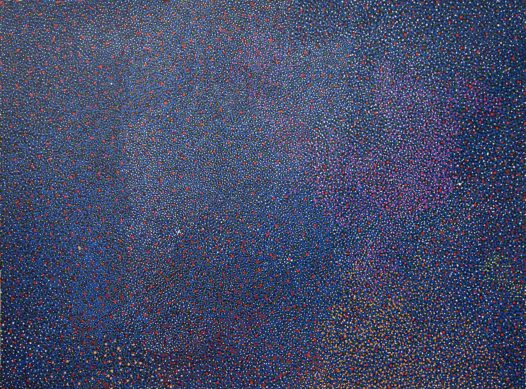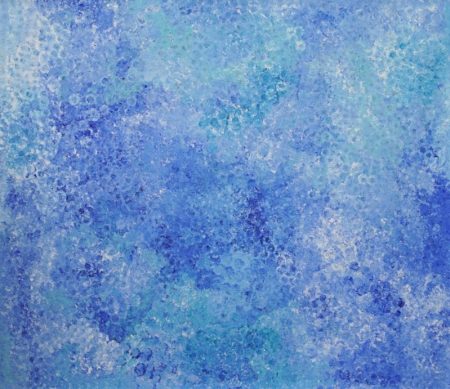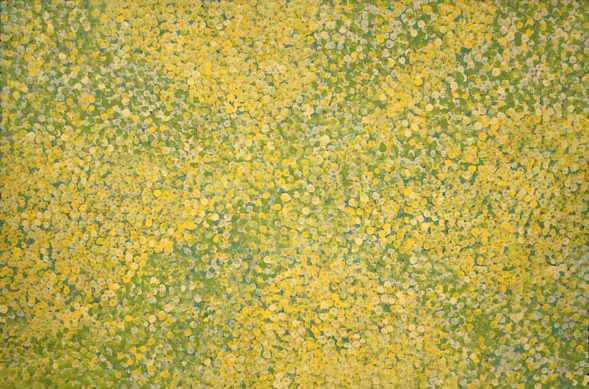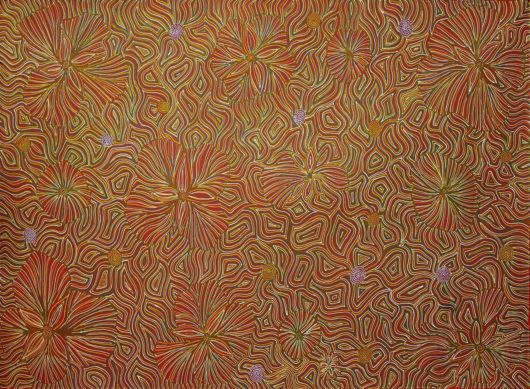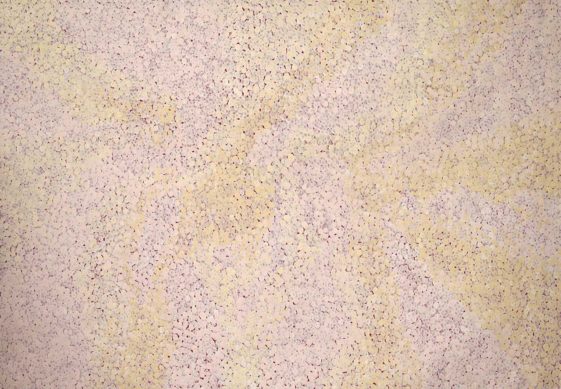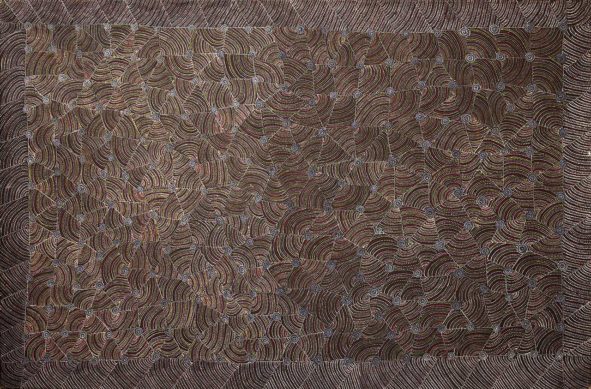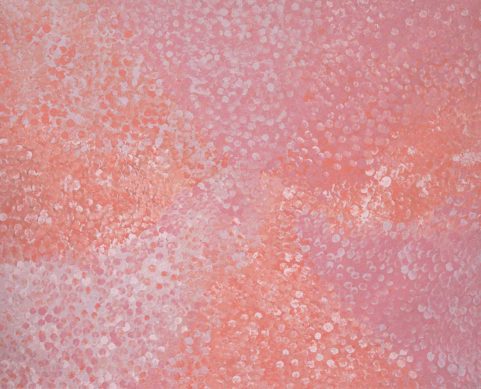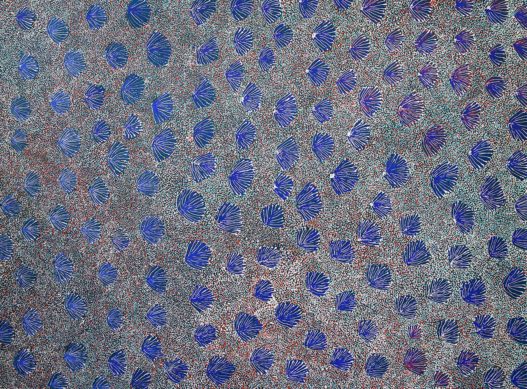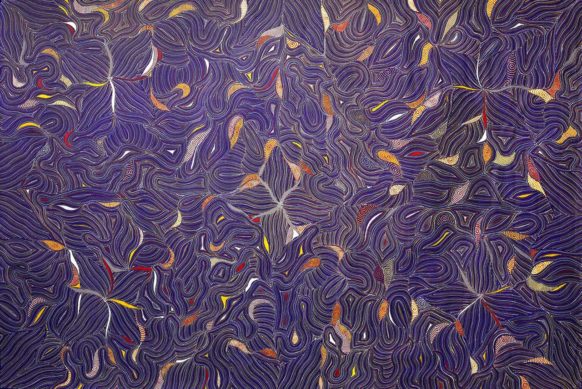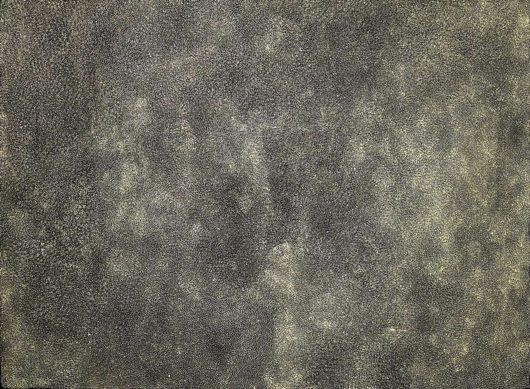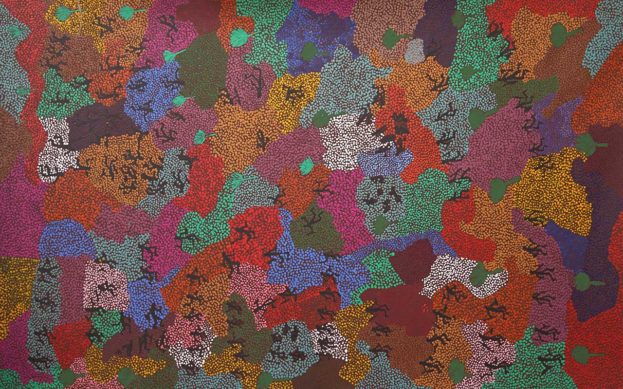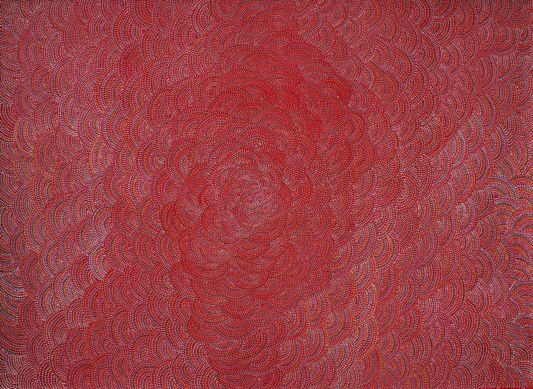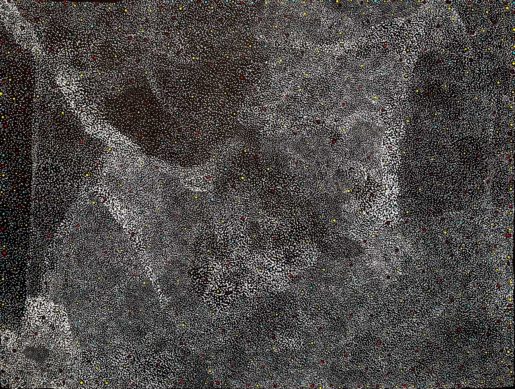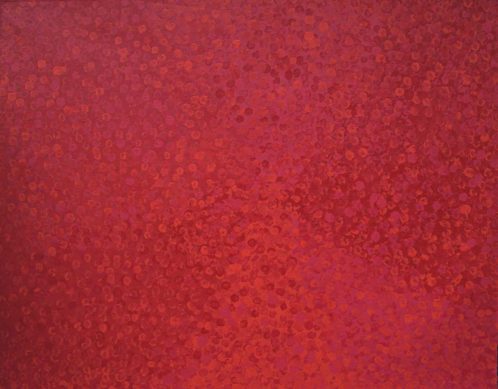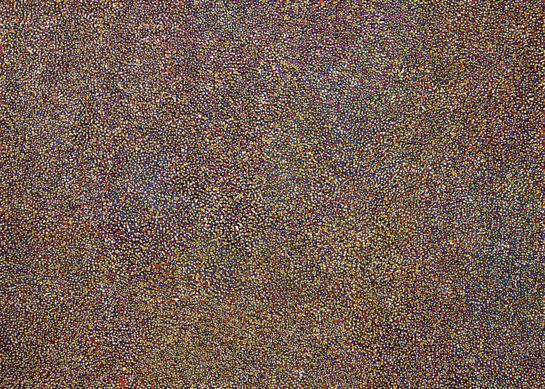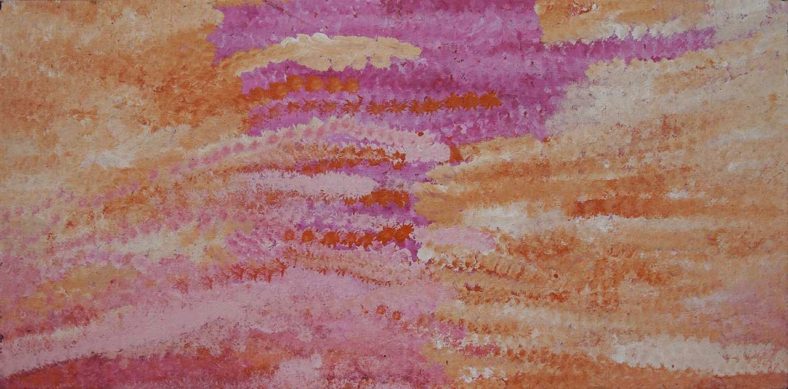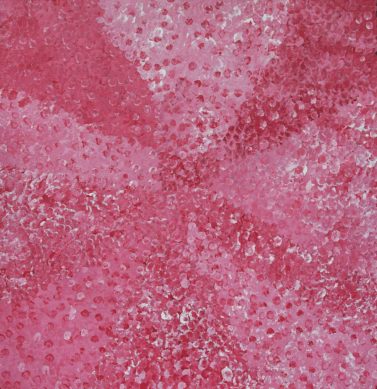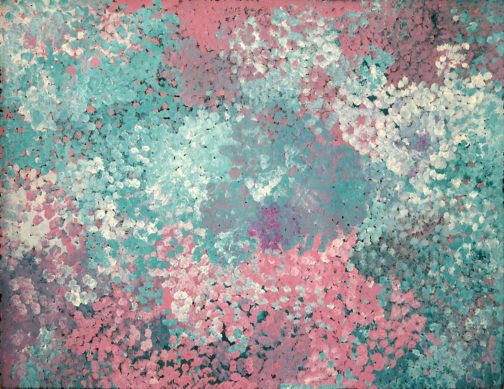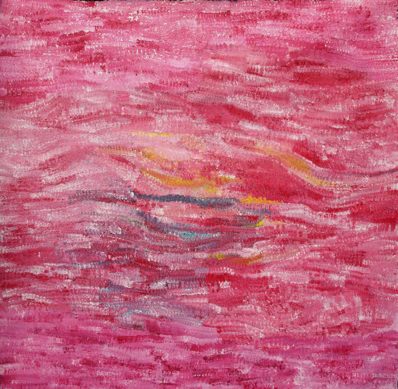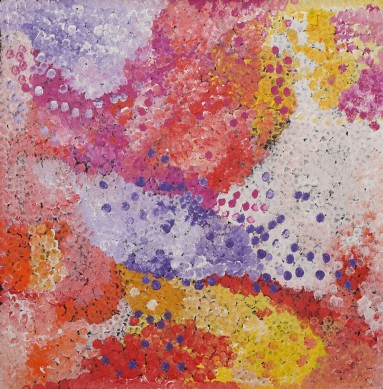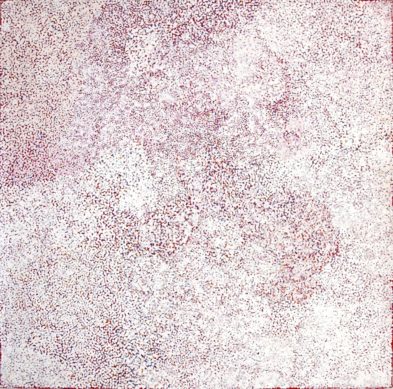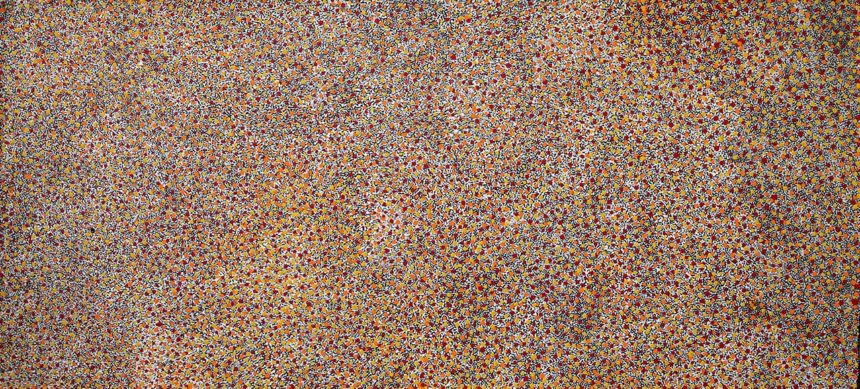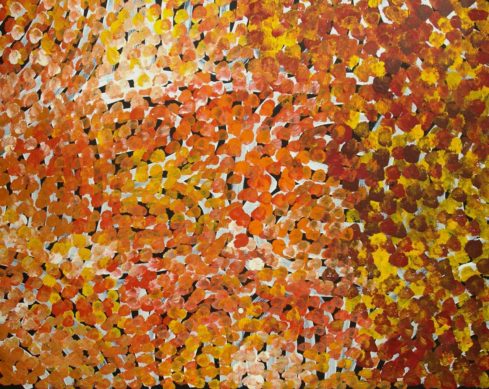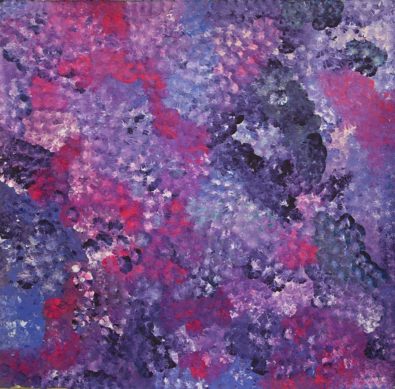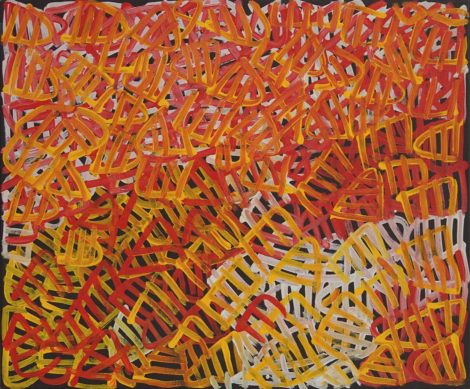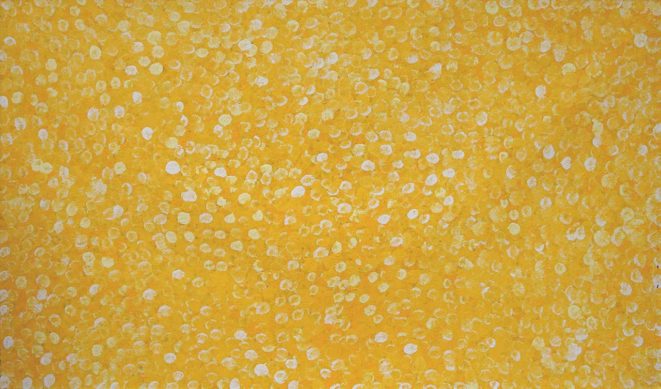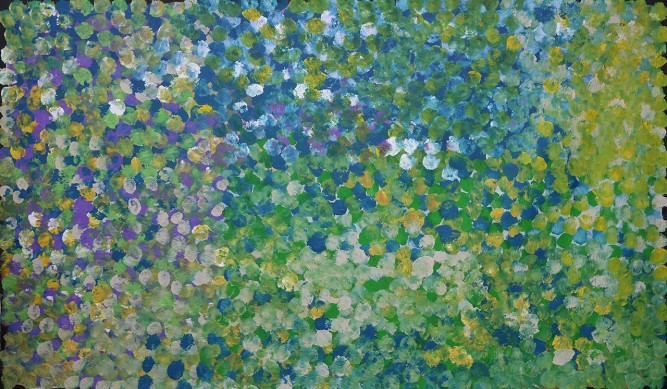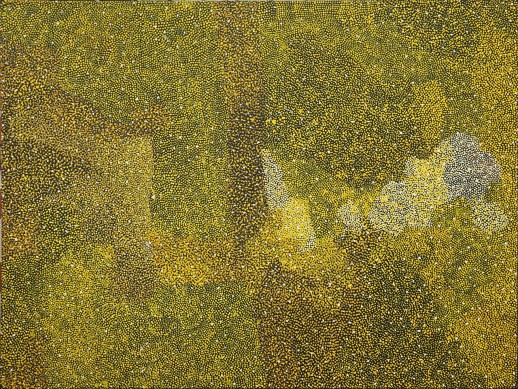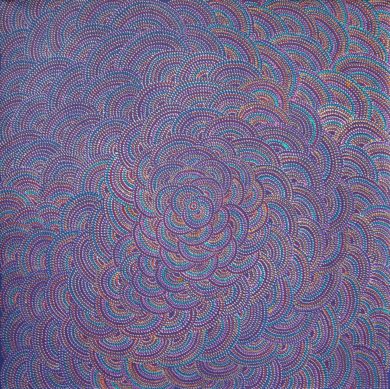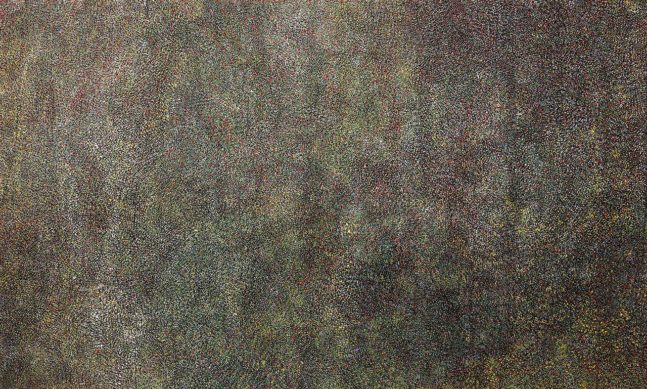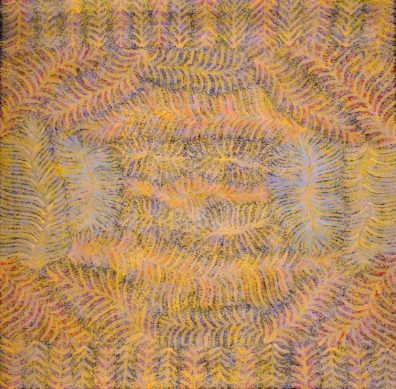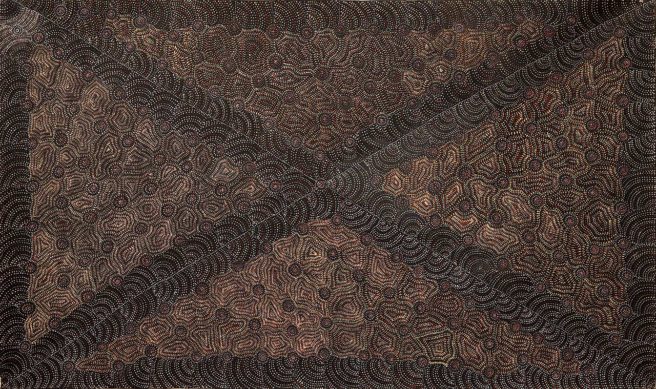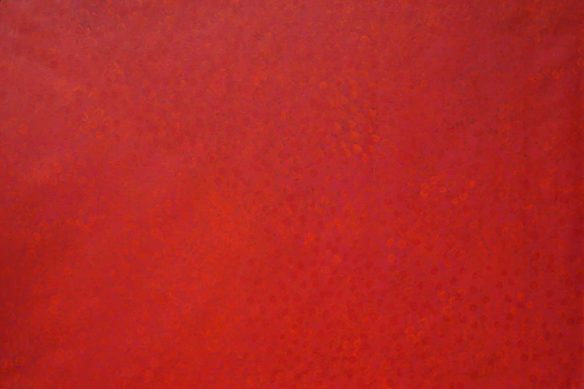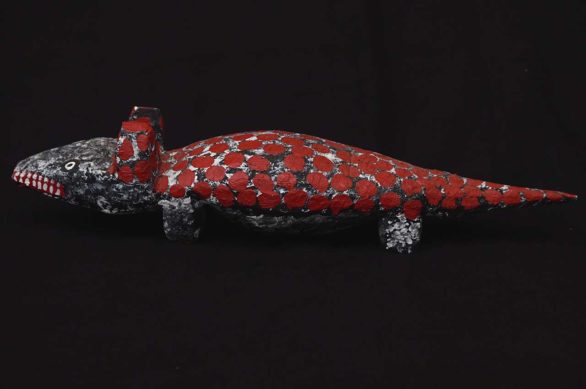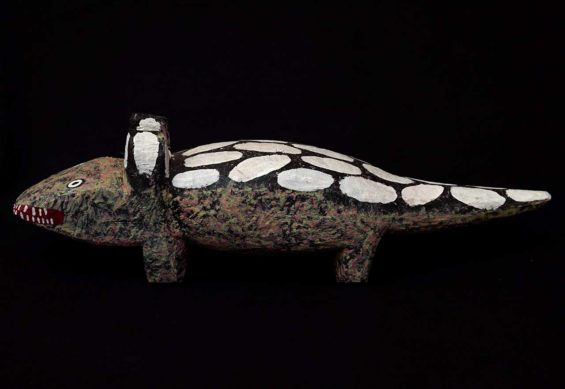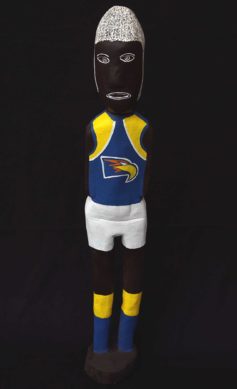01 May 2015
Gallery 1
2 September – 28 October 2016
Camel Camp is one of about twenty outstation camps on the Utopia Homelands. These small settlements have been the basis of family life for the Alywarr and Anmatyerr people who gained freehold rights to the Utopia lands in 1978. The process of lands rights was closely followed by a growing wave of artistic output from these lands, first in batik making then by 1989 in painting.
The linked values of land and painting are well expressed by camel Camp painter Kathleen Ngale – ‘I cannot paint when I’m not on my land. My art exists because of my connection to my homelands. My home and everything it means cannot be moved or rebuilt elsewhere. I have lived here all my life.’ She also states ‘I am the oldest living generation on the Utopia homelands. I have a great responsibility to educate my family and my community about our history and the stories of our country. My paintings are ‘maps’ of our country, featuring clay pans, soakages and other geographical features, as well as sacred sites and various flora like the Ahakey, or bush plum, which I paint on the blues, purples and reds.’ (quoted on the Amnesty website on Indigenous Rights)
Many of the artists living at Camel Camp grew up on MacDonald Downs, the adjacent property owned by the Chalmers family since the 1920s. Sonja Chalmers has worked with the artists whose connections with her family go back many generations. The Utopia artists have been amongst the most successful and innovative artists involved in the Desert Art movement, which began in the early 1970s and continues equally strongly today. Sonja Chalmers rates Camel Camp as a very traditional place with powerful senior women at the helm.
The significance of place and identity is well stated by Ngarla Kunoth Monks – ‘A homeland is a place where family and extended family, all live in one area. I have certain responsibilities in my upkeep of the land, I have to perform ceremonies and look after the country through my grandmother’s line. For me, living on a homeland gives me a sense of purpose because of my responsibilities to my land, my country and to my people. I have to eventually pass down my law to my grandkids.’ (quoted on the Amnesty website on Indigenous Rights)
The exhibition of paintings from Camel Camp and Beyond runs at Japingka Gallery from 2 September to 28 October 2016 and features works by Angelina Ngal Pwerle, Kathleen Ngale, Gladdy Kemarre, Polly Ngale, Josie Petrick Kemarre, Susan Pitjara Hunter and sculptures by Sandy Hunter.

